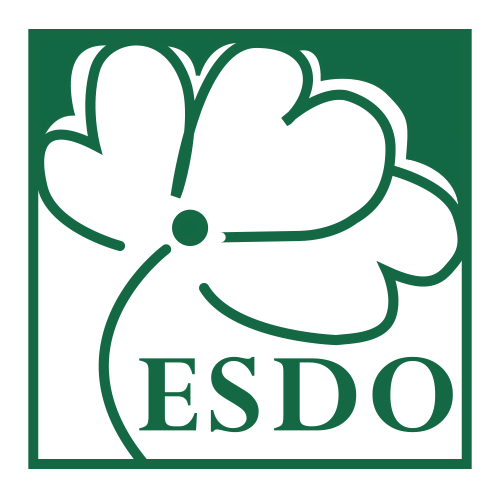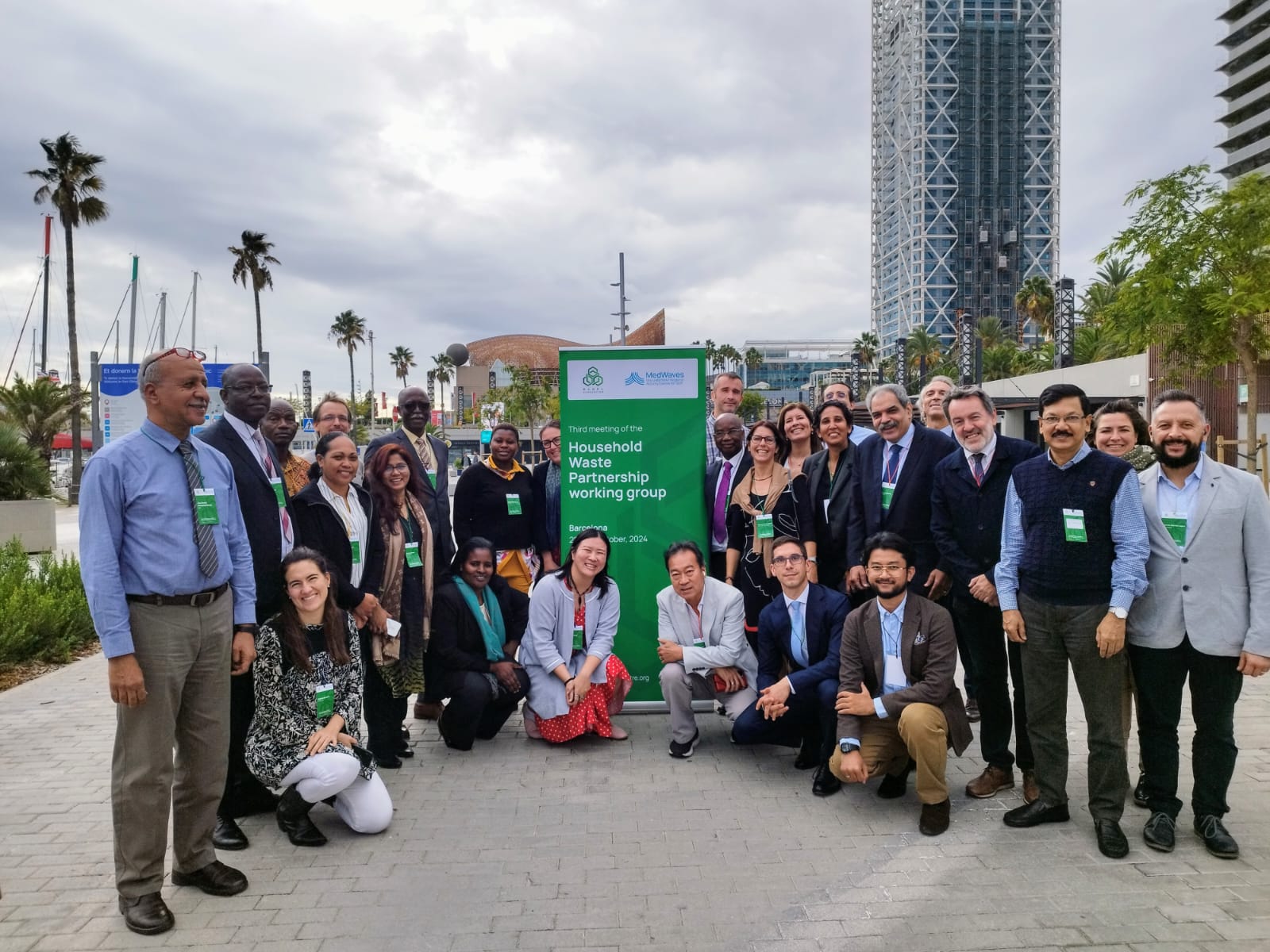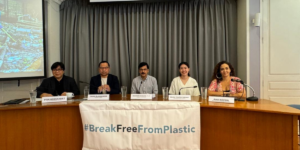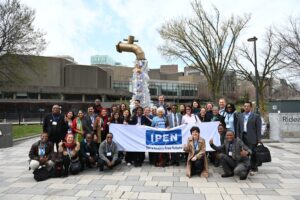Basel, Rotterdam, and Stockholm Conventions
The Basel, Rotterdam, and Stockholm (BRS) Conventions are three major international environmental treaties designed to regulate hazardous chemicals and waste, ensuring their safe management and disposal to protect human health and the environment. These conventions operate under a shared framework, aiming to reduce the risks posed by toxic substances through proper monitoring, trade regulations, and elimination of harmful pollutants. While each convention addresses specific concerns, they collectively contribute to a more sustainable and safer future by promoting environmentally sound management practices.
https://www.brsmeas.org/
Basel Convention: Controlling Hazardous Waste Movements
The Basel Convention on the Control of Transboundary Movements of Hazardous Wastes and Their Disposal was adopted in 1989 and entered into force in 1992 to address concerns over hazardous waste disposal, particularly in developing countries. It aims to reduce hazardous waste generation, promote environmentally sound management, and restrict transboundary movements to prevent illegal dumping. The convention requires exporting countries to obtain prior informed consent from importing nations before shipping hazardous waste, ensuring proper handling and disposal.
Over time, the Basel Convention has expanded to tackle emerging waste issues, including electronic waste (e-waste), plastic pollution, and medical waste. The Plastic Waste Amendments (2021) introduced stricter regulations on plastic waste trade, promoting greater accountability among exporting nations. The convention also supports a circular economy, encouraging waste minimization, recycling, and sustainable production. By preventing environmental harm from hazardous waste, it plays a crucial role in global sustainability efforts.
Rotterdam Convention: Ensuring Safe Trade of Hazardous Chemicals
The Rotterdam Convention on the Prior Informed Consent (PIC) Procedure was adopted in 1998 and came into force in 2004 to regulate the international trade of hazardous chemicals and pesticides. Under the PIC procedure, exporting countries must obtain formal consent from importing nations before trading certain hazardous substances, ensuring recipient countries can assess risks and regulate their use. The convention promotes shared responsibility to prevent harmful chemicals from entering markets without adequate controls.
The treaty covers industrial chemicals and pesticides that have been banned or severely restricted due to their harmful effects. Parties regularly review and expand the list of regulated substances based on scientific findings and risk assessments. Recent discussions focus on adding more highly hazardous pesticides and industrial chemicals to the list, addressing occupational and environmental exposure risks. By fostering transparency and accountability, the convention strengthens national chemical safety regulations and enhances international cooperation.
Stockholm Convention: Eliminating Persistent Organic Pollutants (POPs)
The Stockholm Convention on Persistent Organic Pollutants (POPs) was adopted in 2001 and entered into force in 2004 to eliminate or restrict toxic chemicals that persist in the environment, accumulate in the food chain, and pose serious health risks. POPs include pesticides (e.g., DDT), industrial chemicals (e.g., PCBs), and toxic byproducts (e.g., dioxins and furans), which are linked to cancer, reproductive disorders, and environmental contamination.
Countries under the convention must develop National Implementation Plans (NIPs) to phase out POPs, adopt safe disposal methods, and promote safer alternatives. Over the years, new chemicals have been added to the convention’s list, addressing emerging threats. Major successes include the global phase-out of PCBs and reductions in harmful pesticide use. The convention also emphasizes capacity-building in developing nations, ensuring they have the technical expertise and resources to manage POPs effectively.
BRS COPs 2025: Addressing the Global Challenge of Hazardous Waste and Chemicals
The 2025 Conferences of the Parties (COPs) for the Basel, Rotterdam, and Stockholm Conventions will be held under the theme: “Make visible the invisible: sound management of chemicals and wastes.”
The high-level segment, scheduled for 28 April to 9 May in Geneva, Switzerland will bring together ministers, policymakers, and key stakeholders to discuss pressing challenges in hazardous waste management and chemical safety. Given the increasing threats posed by chemical pollution and waste mismanagement, the 2025 COPs will prioritize:
- Strengthening national and regional capacities for waste tracking and disposal.
- Enhancing chemical safety measures to reduce environmental and health impacts.
- Promoting the phasing out of harmful chemicals and promoting sustainable alternatives.
- Addressing the transboundary movement of hazardous waste to prevent illegal dumping.
- Strengthening cooperation among governments, industries, and civil society organizations.
ESDO and BRS COPs:
- ESDO has been actively involved in the BRS Conventions (Basel, Rotterdam, and Stockholm) since the beginning, focusing on hazardous waste management, chemical safety, and pollutant control.
- It participates in Conference of the Parties (COPs) to advocate for environmental protection and raise awareness on toxic chemicals and waste management.
- ESDO helps align Bangladesh’s policies with international standards set by the BRS Conventions.
- The organization promotes best practices for managing hazardous materials and supports global efforts to minimize environmental harm from pollutants.
- ESDO contributes to policy discussions, ensures Bangladesh’s voice in global environmental forums and supports the implementation of sustainable practices
3. Securing resources for implementation
BRS COPs 2025 Updates: Key Interventions by Bangladesh and ESDO
29 April – 2 May 2025
The 2025 Meetings of the Conferences of the Parties (COPs) to the Basel, Rotterdam, and Stockholm (BRS) Conventions saw active participation from Bangladesh and the Environment and Social Development Organization (ESDO), advocating for stronger chemical and waste management policies, financial support for developing nations, and stricter enforcement of global environmental agreements.
Bangladesh’s Strategic Interventions
1. Aligning Chemical Management with Biodiversity Goals
Bangladesh highlighted Target 7 of the Kunming-Montreal Global Biodiversity Framework (GBF), urging the Global Environment Facility (GEF) to increase grants for the BRS Conventions and other agreements aimed at reducing pesticide and hazardous chemical risks by 50% by 2030. The intervention emphasized the need for financial support to help developing countries phase out hazardous chemicals, aligning with global biodiversity and chemical management goals.
2. Supporting the New Strategic Framework (2026-2031)
Bangladesh backed the new strategic framework and proposed:
- A dedicated training/pilot program to enhance developing countries’ engagement in the Prior Informed Consent (PIC) procedure.
- Extended Producer Responsibility (EPR) and harmonized recycling standards under the Plastics Waste Amendments.
- Increased financial and technical assistance to implement PIC improvements, including capacity-building initiatives.
3. Opposition to POPs Exemptions & Ship Recycling Loopholes
Against POPs Exemptions: Bangladesh, alongside Kyrgyzstan, firefighters’ unions (UFU), IPEN, and Indigenous groups (ICC), strongly opposed extending exemptions for Persistent Organic Pollutants (POPs) in installed systems. The UFU criticized calls for “another five years of poisoning,” while the ICC stressed that Inuit communities should not bear the costs of delayed action.
Hong Kong Convention (HKC) Concerns: Bangladesh and NGOs like Shipbreaking Platform and BAN argued that the HKC weakens protections under the Basel Convention (BC), allowing loopholes for unsustainable ship recycling practices.
ESDO’s Advocacy for Stronger Chemical & Waste Policies
1. Strengthening Financial Mechanisms Under the Stockholm Convention
ESDO argued that the Stockholm Convention’s financial mechanism should explicitly include support for:
- Research
- Technical assistance
- Monitoring and reporting
This ensures effective implementation, particularly for developing countries tackling Persistent Organic Pollutants (POPs).
2. Urgent Action on POPs Elimination
ESDO urged meeting 2025/2028 POPs elimination goals, while IPEN highlighted slow progress—only 20% of PCB stockpiles have been destroyed despite the 2028 deadline.
3. Plastic Waste & Basel Convention Enforcement
Against Reopening Technical Guidelines: ESDO cautioned against reopening plastic waste guidelines until key issues are resolved, including:
- Banning plastic waste exports from developed to developing countries
- Closing regulatory gaps
- Transparency & Compliance: Called for stronger traceability, enforcement, and transparency to combat illegal hazardous waste trade, including plastics.
4. Capacity Building for National Reporting
During discussions on Article 15 reporting, ESDO highlighted challenges in adapting to revised formats and stressed the need for periodic capacity-building and training to support compliance, especially for developing nations.
Session Outcomes & Next Steps
A contact group on financial resources was established, co-chaired by Zambia and the UK, to discuss funding mechanisms, including ESDO’s proposals.
Debates on POPs exemptions, ship recycling, and plastic waste underscored tensions between industry demands and environmental/health protections.
Key Takeaways
✅ Bangladesh reinforced the link between chemical management & biodiversity targets, pushing for more GEF funding.
✅ ESDO advocated for stronger financial mechanisms, POPs elimination, and plastic waste trade bans.
✅ Strong opposition to loopholes in ship recycling (HKC) and POPs exemptions highlighted health and environmental justice concerns.
✅ Developing countries need more technical & financial support to meet BRS Convention obligations.
For regular updates, visit: https://enb.iisd.org/basel-rotterdam-stockholm-conventions-brs-cops-2025



